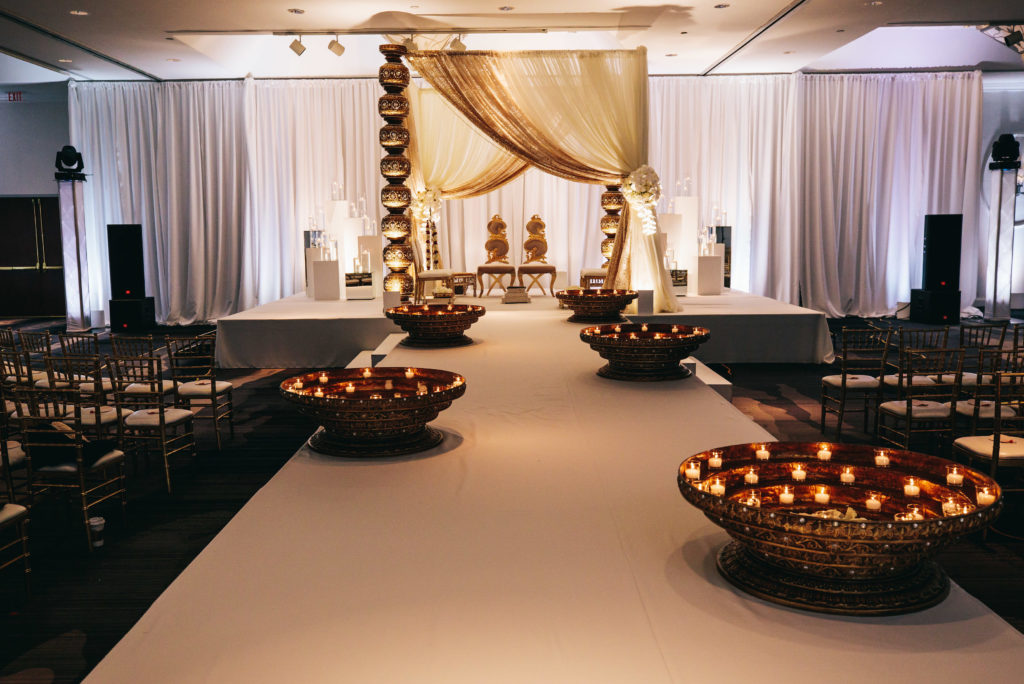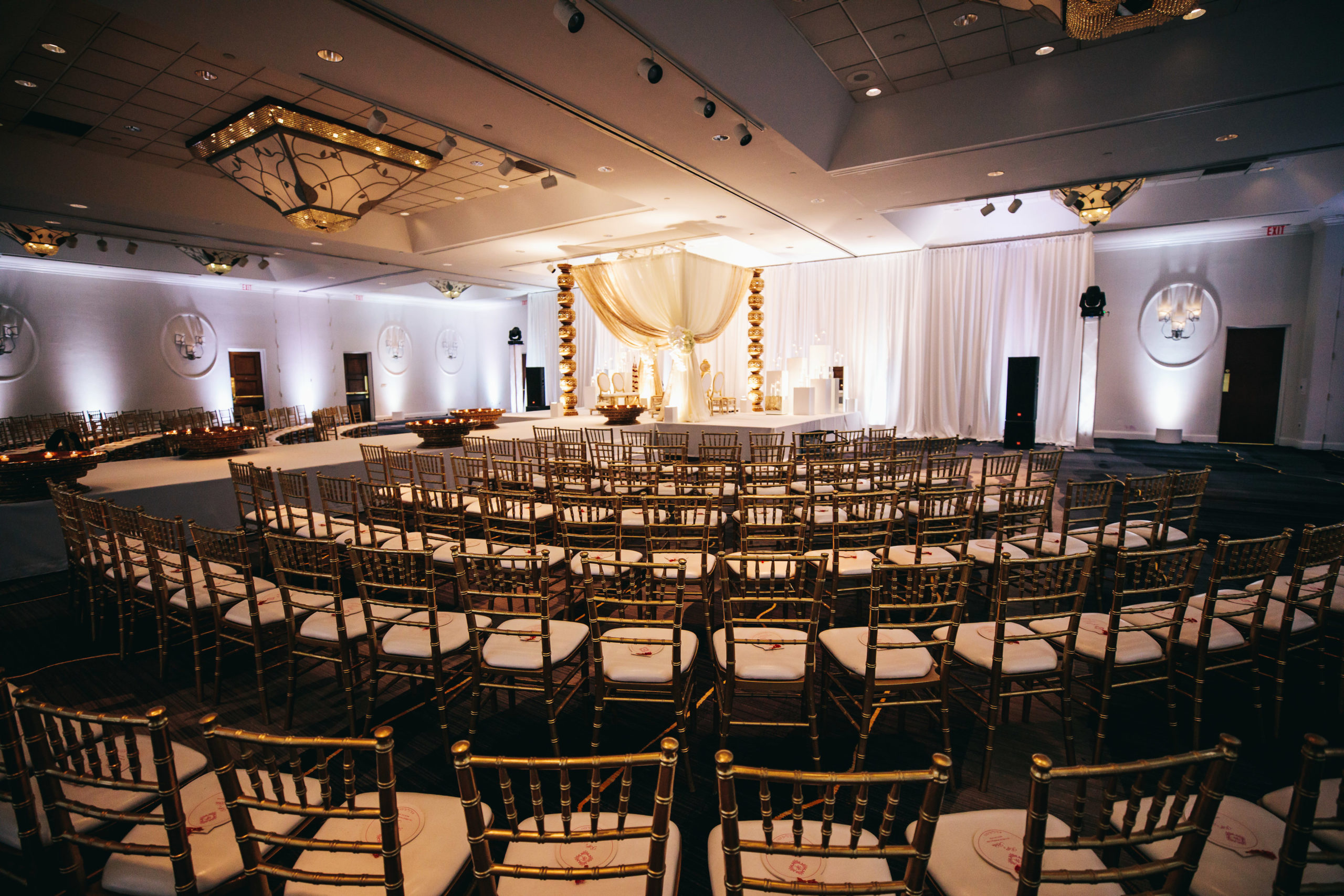Taking place over multiple days, planning and executing an Indian wedding can get overwhelming. The first step in planning your Indian wedding is booking a venue for all your events. Oftentimes, this can be one of the most daunting tasks especially when you are not familiar with venue terms. Below are some of our most commonly asked terminologies when booking a hotel venue.
Banquet Event Order
As you start finalizing the details of your events, your venue will start building out a banquet event order, otherwise known as a BEO. A BEO is a contract consisting of all the details associated with each event. At a minimum, your BEO should include vendor load in and load out times, layout information, beverage and food details, service times, headcount details, room rental information, and schedule and order of events. This document will need to be signed by the venue and the client approximately a week prior to the first event. For larger Indian weddings, we recommend finalizing and signing the BEO 2-3 weeks prior to your first event. This will give your venue ample time to ensure all the essential details are in place.
Outside Catering Fee
Indian weddings often require hiring an outside caterer. Venues that do allow an outside caterer to come in and provide services will usually charge an additional fee known as the outside catering fee. This is generally a per person per event fee void of any tax and service charges.
This fee usually includes a banquet captain and waitstaff, select equipment for your outside caterer to use (chafers, plates, drinkware, silverware, etc.), and standard hotel linens and napkins. The fee may or may not include additional services such as complimentary cake cutting and coffee and tea service with your desserts. The ability to use a venue’s in house kitchen facilities will depend on your venue’s policies.
This fee usually does not include any non-alcoholic and/or alcoholic beverages. For liability reasons, the hotel staff will not manage another caterer’s food. Therefore, your caterers will have to replenish all the food they bring in themselves throughout your wedding event(s).
Venue Coordinator
Your venue will most likely provide you with a venue coordinator. However, a venue coordinator is not the same as a wedding planner. A venue coordinator’s job is to provide you with information and assist you with venue specific details associated with your event. They will let you know if your needs can be met at that venue and may be able to provide you with alternate options as needed. A venue coordinator’s main goal is to protect the venue’s assets and interests. They will ensure that the clients needs are being met only from the venue’s standpoint.
Alternatively, your wedding planner will make sure that your needs are being taken care of from all the vendors’ standpoint. Your wedding planner’s main purpose is to have your best interest in mind and advocate for all your wants and needs. Make sure to utilize your wedding planner’s knowledge as they tend to know how to navigate the intricacies of vendor and venue dynamics.

Leave a Reply Cancel reply
Copyright 2025 RHS Events | Brand and Web Design by Carrylove Designs
